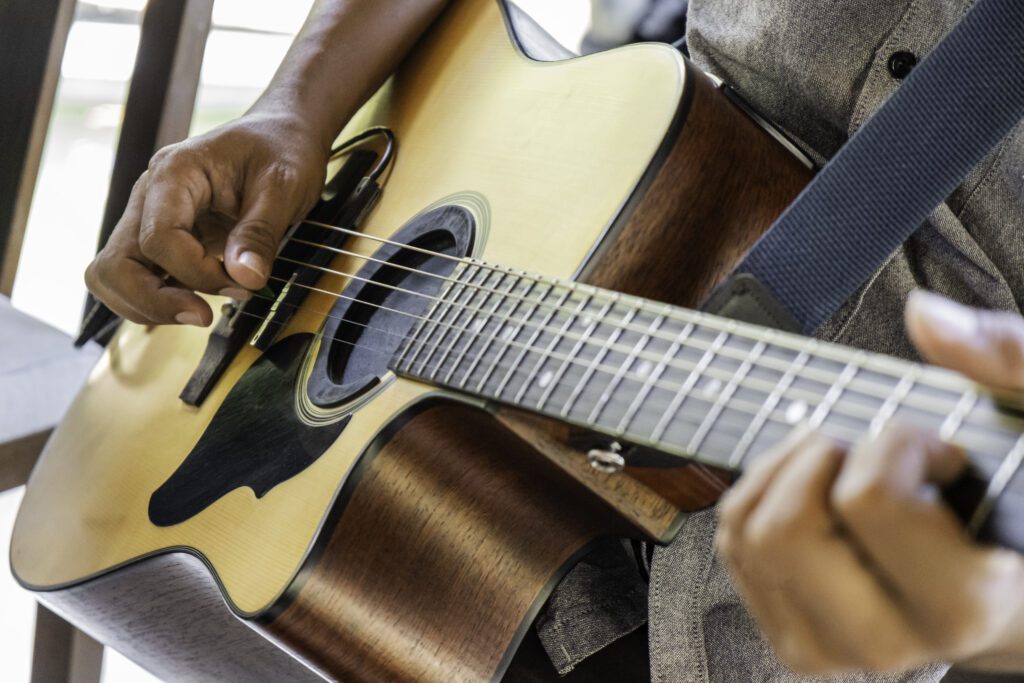Introduction: Understanding the Best Age to Learn Guitar

Learning to play the guitar is a goal that appeals to people across all age groups. Whether you are a child, teenager, or adult, the idea of mastering this timeless instrument is both exciting and rewarding. Many people wonder, however, what is the best age to learn guitar.? The answer largely depends on individual factors such as physical readiness, personal interests, and learning preferences. While younger learners benefit from rapid adaptability, older students bring focus and determination to the learning process. Ultimately, the best age to learn guitar is whenever your passion and commitment align. With the right guidance, anyone can successfully begin their guitar journey and enjoy the lifelong benefits of playing music.
The Best Age to Learn Guitar as a Child: Unique Advantages

When deciding the best age to learn guitar, it’s important to evaluate several key factors. Physical development, cognitive readiness, and personal motivation all play crucial roles in determining the right time to start.
- Physical Development: Younger learners often face challenges with small hands, but child-sized guitars make the learning process much easier.
- Cognitive Readiness: Adults and teenagers tend to have a better grasp of complex musical concepts, aiding their overall progress significantly.
- Personal Motivation: Regardless of age, motivation drives success. Learners who are passionate about music are more likely to practice regularly.
By carefully considering these factors, you can better assess when the time is right to begin guitar lessons for yourself or your child.
Why the Teenage Years Are the Best Age to Learn Guitar for Many

Many experts agree that early childhood is one of the best times to start learning guitar. Children between the ages of 6 and 10 are particularly well-suited for musical education.
- Quick Learning Abilities: Young children’s brains are highly adaptable, making it easier for them to pick up new skills, including complex guitar techniques.
- Playful Approach: Guitar lessons designed as fun and engaging activities help children stay motivated and enjoy the learning process.
- Laying the Foundation: Early exposure to music instills lifelong skills, such as rhythm recognition, coordination, and an appreciation for music.
However, starting early also requires patience and a focus on maintaining a pressure-free learning environment. Positive reinforcement can make a big difference in ensuring young learners develop a love for playing guitar.
Why Adults Should Embrace Their Potential to Learn Guitar at Any Age

Teenagers are often at the ideal stage for learning guitar. During these years, they have the physical and mental readiness to make significant progress.
- Better Focus and Understanding: Teens have the cognitive ability to grasp more complex musical concepts, including reading sheet music and understanding chord structures.
- Emotional Outlet: Playing guitar allows teenagers to express their emotions creatively and can help them manage stress during challenging times.
- Opportunities for Social Engagement: Learning guitar often leads to participation in bands or school events, boosting confidence and social skills.
Teenagers also tend to be highly motivated when they discover music they love, making this an excellent time to develop lifelong guitar skills
Why Adults Should Never Underestimate Their Potential to Learn Guitar

Adults often believe they have missed the best age to learn guitar, but that is far from the truth. Learning guitar as an adult comes with unique advantages that can make the process just as rewarding as starting young.
- Focused Learning Approach: Adults have developed better discipline and focus, which help them make steady progress despite having busy schedules.
- Life Experience: Adults bring emotional depth to their music, enhancing their ability to connect with the instrument and express themselves.
- Flexibility with Goals: Unlike children, adults can set realistic goals and customize their learning path based on their interests and availability.
While starting later may require more patience, adults often make up for this with their determination and commitment. With consistent practice and the right mindset, adults can achieve remarkable results.
Comparing the Advantages of Learning Guitar Across Different Ages

Each age group offers unique strengths that contribute to a fulfilling guitar-learning experience. By understanding these benefits, you can choose the right time to start your journey.
- Children: Young learners benefit from natural adaptability and a long timeline to refine their skills, making it easier to build musical foundations.
- Teenagers: With a combination of enthusiasm and cognitive readiness, teenagers often make faster progress and enjoy participating in musical groups.
- Adults: Adults excel in understanding musical theory, staying disciplined, and applying life experiences to their learning process.
There is no one-size-fits-all answer to the best age to learn guitar, as success depends on individual circumstances. Regardless of age, each stage offers a unique and rewarding way to experience the joy of playing guitar.
Effective Tips for Starting Guitar Lessons Regardless of the Best Age to Learn Guitar

No matter when you begin, adopting the right strategies can make your guitar-learning journey more effective and enjoyable.
- Choose the Right Guitar: Ensure your guitar is suited to your age and size, as this greatly improves comfort and playability during practice.
- Find Quality Instruction: Whether through online courses, private lessons, or self-teaching apps, select a method that suits your learning preferences and goals.
- Practice Consistently: Regardless of your starting age, regular practice sessions, even if short, help build muscle memory and refine techniques over time.
- Set Achievable Goals: Focus on small, realistic milestones to maintain motivation and track your progress as you develop your guitar skills.
When you combine these strategies with dedication and passion, you can achieve your guitar-playing goals at any age.
Overcoming Challenges When Learning Guitar | Finding Your Best Age to Start

While adults may face unique challenges when learning guitar, these obstacles are manageable with determination and the right strategies.
- Time Constraints: Adults often juggle work, family, and other responsibilities, but setting aside even 15 minutes daily ensures consistent progress.
- Physical Adaptation: Adults might initially experience finger discomfort, but regular practice helps build the strength and flexibility needed for smooth playing.
- Learning Curve: It’s common to feel frustrated at the start, but patience and a focus on small victories keep the motivation alive.
Adults possess the maturity and problem-solving skills to tackle these challenges, making the guitar-learning process both achievable and deeply rewarding.
Why the Best Age to Learn Guitar Depends on Individual Goals

The question of the best age to learn guitar ultimately depends on what you hope to achieve. Your goals often dictate when the journey should begin.
- Aspiring Professionals: Starting young offers ample time to refine skills, compete in events, and build a career in the music industry.
- Hobby Enthusiasts: For those seeking a fulfilling pastime, any age works perfectly to enjoy the creative and relaxing benefits of playing guitar.
- Lifelong Learners: Individuals who value continuous self-improvement can start at any point in life, with goals tailored to their own pace and interests.
By aligning your goals with your starting point, you can find immense satisfaction and success in your guitar-learning journey.
Lifelong Benefits of Guitar Learning | It’s Never Too Late to Start

Learning guitar at any age brings lifelong advantages that go beyond just playing music. It enriches your mental, emotional, and social well-being.
- Boosts Cognitive Skills: Guitar playing sharpens memory, improves concentration, and enhances problem-solving abilities, offering long-term mental benefits for all age groups.
- Enhances Emotional Health: Playing music allows self-expression and stress relief, helping you stay calm and balanced through life’s ups and downs.
- Builds Social Connections: Whether performing in groups or sharing music online, guitar playing fosters connections with others who share your passion.
When you make the guitar a part of your life, its benefits extend far beyond music, leaving a lasting positive impact.
Final Thoughts | The Right Time is Now

The best age to learn guitar is whenever you feel inspired to start. Whether you are a child, teenager, or adult, each stage of life offers unique advantages for mastering this versatile instrument. By understanding your goals, choosing the right learning method, and practicing consistently, you can enjoy the rewarding journey of learning guitar at any age.
For more tips, guidance, and expert resources, visit The Mystic Keys. Want to Learn Guitar from scratch? Check out our Guitar Lessons Online and learn from world class musicians.
Additionally, for more resources about music education, public speaking, and much more, visit The Mystic Keys. You can also follow us on our social media platforms for exciting content and updates: Facebook, Instagram, YouTube, LinkedIn, Twitter, Pinterest, Reddit, Threads, and Quora.
Start your guitar journey today, and let music become a lifelong source of joy and creativity!








